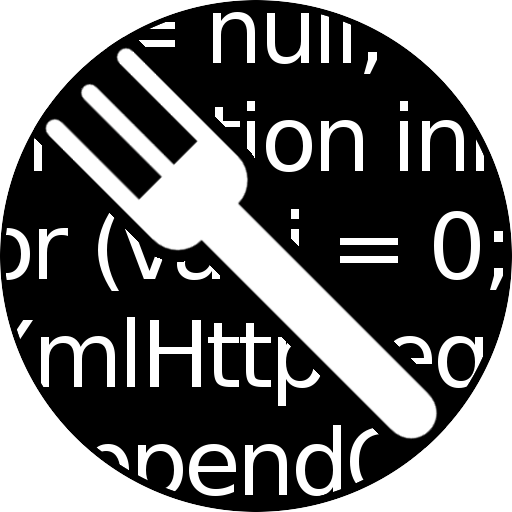Overmorrow refers to the day after tomorrow and I feel like it comes in quite handy for example.
I agree that we should use overmorrow more. Japanese has a similar word and it gets frequent use.
Many languages have it. English for some reason does not use it
In my country we also have a word for that and it’s always used when referring to overmorrow.
Hungarian as well. Tomorrow = holnap, overmorrow = holnapután. You can also stack the ”után" if you so wish, like holnapután-után. But more than that and you will get some curious looks from others :)
Albeit.
My favorite English word… I use it quite often because it fits the German Ductus.
- Paramour
It sounds fancy, but means a casual lover. A fuck buddy. A friend with benefits. Though it can also carry the implication of being an out-of-wedlock lover, as it dates back to a time where having a fuck buddy was almost certainly a sign of married infidelity.
- Kith
Means one’s friends and other people they are close to that aren’t family. Often paired with “kin”. Kith and kin. Friends and family.
Interesting. The only two references I’ve ever heard to Paramour are the band and the achievement in Mass Effect. I’m now wondering if the devs of that series knew exactly what it meant (infidelity) because you get the achievement for having any relationship. Maybe it’s because you can’t remain loyal to your original partner to get it in all three games with one playthrough.
Right, I think that achievement only happens in the sequals.
I use paramour, usually to describe an infidelity situation. No one under 35 knows what it is.
A paramour is an “other lover”. Para = beside, amour = love. It’s not a casual fuck buddy, it’s your cheating partner. I’m surprised to hear you say it’s unknown as a word these days? Seems like just a normal word to me, albeit one I’m happy to go without using as cheaters suck.
Gloam/gloaming
The onset of twilight/becoming gloomy
Spotted the Radiohead fan
I’m honestly not sure what you’re referring to. Is that a word they use a lot in their lyrics?
They wrote “Roaming In The Gloaming”, I guess?
defenestrate.
philalethist, A lover of truth.
Not to be confused with philatelist, a stamp collector. The word means to enjoy receiving something without the necessity of payment.
Widdershins. It means counter to the sun’s direction , and was seen as inauspicious. Counter-clockwise, before clocks.
I only know the term from Disc World, is that a real world term or just one of the many whimsical terms Pratchett coined in the books
It’s real! https://en.m.wikipedia.org/wiki/Widdershins
As long as it’s not “used car salesmen” words:
- the ask
- the spend
- action this
It’s as discordant as “the above paragraph” or “see the below steps” except with wrong words instead of broken ordering.
Smaragdin which means “green”
Rob is a name in English. Rob means slave in Bosnian.
Crepuscular. Related to twilight, dimness, the golden hour.
Euouae
https://en.m.wikipedia.org/wiki/Euouae
Euouae (/juː.ˈuː.iː/; sometimes spelled Evovae)[1] is an abbreviation used as a musical mnemonic in Latin psalters and other liturgical books of the Roman Rite. It stands for the syllables of the Latin words saeculorum Amen, taken from the Gloria Patri, a Christian doxology that concludes with the phrase in saecula saeculorum. Amen. The mnemonic is used to notate the variable melodic endings (differentiae) of psalm tones in Gregorian chant.
In some cases, the letters of Euouae may be further abbreviated to E—E.[2] A few books of English chant (notably Burgess and Palmer’s The Plainchant Gradual) make use of oioueae for the equivalent English phrase, “world without end. Amen”.
According to Guinness World Records, Euouae is the longest word in the English language consisting only of vowels, and also the English word with the most consecutive vowels.[3] As a mnemonic originating from Latin, it is unclear that it should count as an English word; however, it is found in the unabridged Collins English Dictionary.[4]
No, someone just dropped a pile of vowels on a page while carrying them to be cleaned or something, and the monks decided to stick with it
John Madden. Football.
?
An ultracrepidarian—from ultra- (“beyond”) and crepidarian (“things related to shoes”)—is a person considered to have ignored this advice and to be offering opinions they know nothing about.
The word is derived from a longer Latin phrase and refers to a story from Pliny the Elder
The phrase is recorded in Book 35 of Pliny the Elder’s Natural History as ne supra crepidam sutor iudicaret[1] (“Let the cobbler not judge beyond the crepida”) and ascribed to the Greek painter Apelles of Kos. Supposedly, Apelles would put new paintings on public display and hide behind them to hear and act on their reception.[2] On one occasion, a shoemaker (Latin sutor) noted that one of the crepides[a] in a painting had the wrong number of straps and was so delighted when he found the error corrected the next day that he started in on criticizing the legs.[2] Indignant, Apelles came from his hiding place and admonished him to confine his opinions to the shoes.[2] Pliny then states that since that time it had become proverbial.[2]
Petrichor: The smell of rain on dry ground. One of those things everybody knows about but lacks a word for.
It’s funny, literally every Doctor Who fan knows this word and what it means thanks to Neil Gaiman.
Apparently Streptomyces are the cause.
I learned about this in Amsterdam’s Groote Museum today, huh
“Philomot” was always pretty charming. “The color of a dead leaf.”











